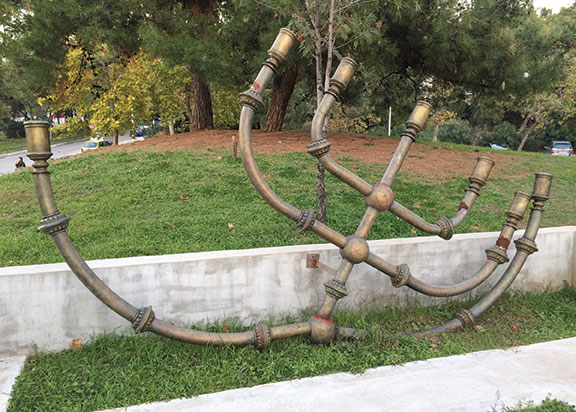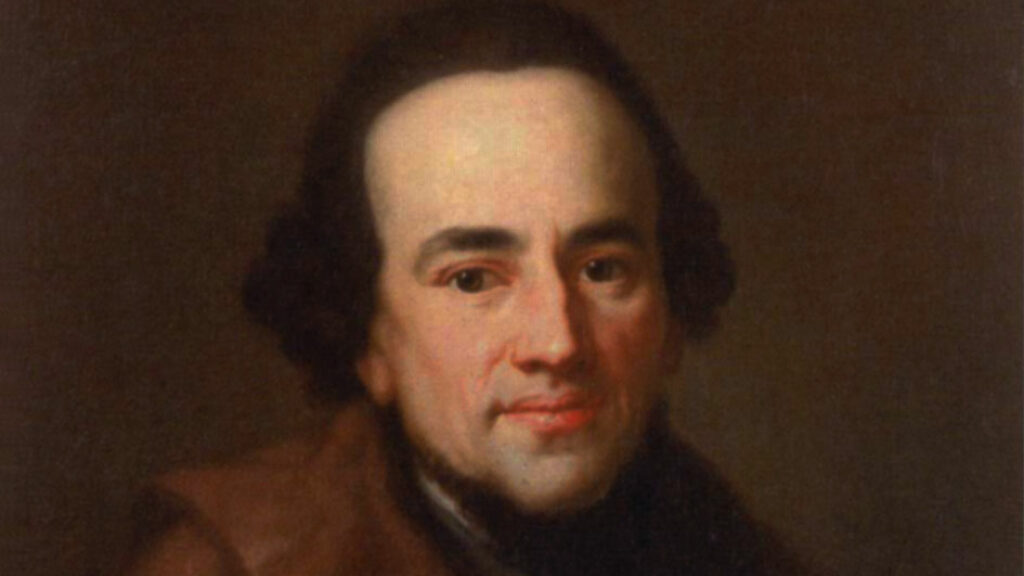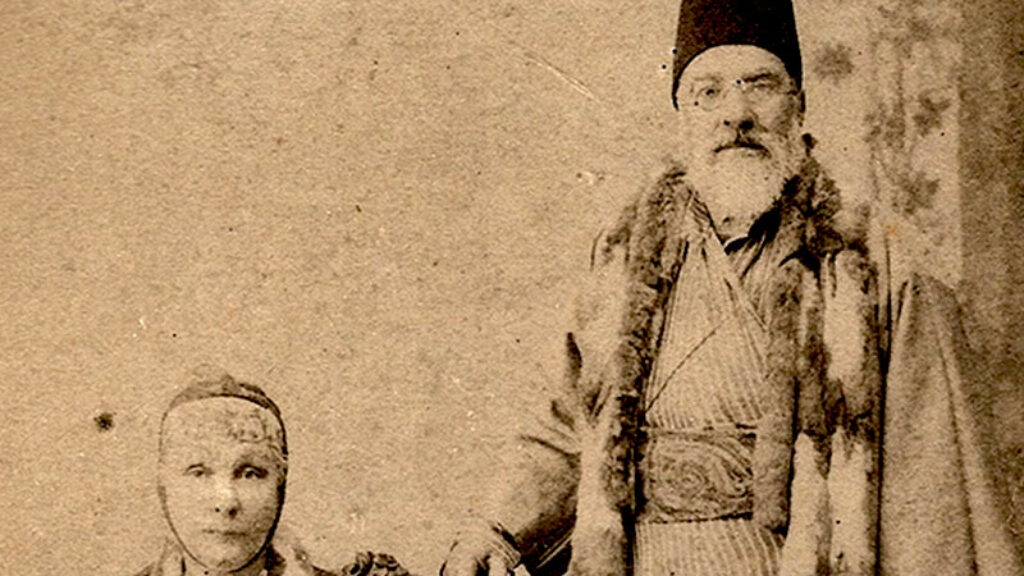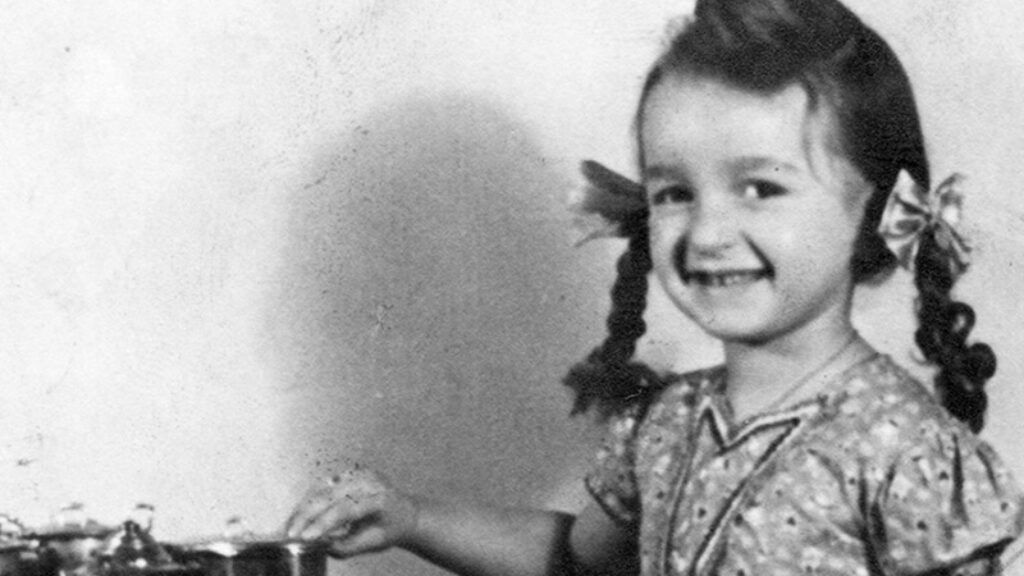Memory and Desecration in Salonica
A year after I published an article in these pages about the Jewish past of Salonica (now Thessaloniki) and its citizens’ ambivalent attempts to recall that history, I found myself speaking at Aristotle University, the largest institution of higher education in Greece. (See “Jerusalem of the Balkans,” Spring 2013.)
I was accompanied to the podium by an armed guard provided by the American consulate to ensure my safety. After thanking the university and the consulate for the invitation, I told the audience, in Greek, that my grandfather had been born here in Salonica just before the disastrous fire of 1917, and that my family had lived in the city for four centuries, going back to the years after the Spanish Expulsion. Then I told them something much more difficult: that members of my family had also died there and were buried there:
Not just in the city in general, but exactly here, beneath our feet, beneath this university campus. The campus was once a vast Jewish necropolis, a cemetery. It is difficult for me to stand here because it is as if I have come to visit the eternal resting place of my loved ones, but I know that their rest is without peace, and I don’t really know where to go or what to say. I congratulate the Jewish community and the university for the new monument, which recognizes this fact for the first time.
Then I went on in the Judeo-Spanish my grandfather had taught me, which, as I reminded them, was at one time the mother tongue of about half of the city’s inhabitants, and was spoken and understood by Orthodox Christians and Muslims as well. (My grandfather simply called it espanyol, but others call it djudeo-espanyol, Judezmo, or Ladino.)
When I stroll through the campus, with every step I think: Who was once laid to rest here? And who there? The surnames of family members who were once buried here, in this Beth Ahaim [house of life], include: Naar, Nifoussi, Fais, Auyash, Nehama, Saltiel, and more. They remain voiceless. But now, the silence is coming to an end; the doors—very slowly—begin to open. As is said in Judeo-Spanish: Deshame entrar, me azere lugar (Let me enter, and I will make a place for myself).
In fact, there had been 72 years of silence since the cemetery was destroyed, but the memorial that had just been erected to recognize this fact was somewhat less than clear about who had been responsible for the destruction. It featured a large menorah and accompanying plaques with text in five languages—Greek, Hebrew, Judeo-Spanish, English, and French—that attribute the cemetery’s destruction to the “Nazi occupation forces and their collaborators.”
 The vandalized monument, Aristotle University of Thessaloniki. (Courtesy of the author.)
The vandalized monument, Aristotle University of Thessaloniki. (Courtesy of the author.)
Salonica’s vast cemetery, which held more than 350,000 Jewish graves over some 86 acres, was razed when the city was occupied by the Germans, but the destruction was the idea of the local Greek authorities. In fact, they had been planning to take the land for more than a decade, and a Greek law had already expropriated part of it in 1937. As the teacher and historian Michael Molho recorded, the Nazi military administrative director actually decided that less of the cemetery could be expropriated, but “anticipating . . . German approval for any increased, harsh anti-Jewish measures,” local Greek authorities ignored his orders.
At the municipality’s expense, five hundred workers with pickaxes laid waste to the Jewish cemetery of Salonica in December 1942. Marble flooded the market, and its price plummeted. Jewish tombstones were stacked in masons’ yards. With the permission of the director of antiquities of Macedonia and under the supervision of the metropolitan bishop and city officials, they were used to line latrines, pave roads, repair the Church of Saint Demetrius, lay the courtyard of National Theater of Northern Greece, construct the cafeteria of the Yacht Club of Thessaloniki, and, of course, build the university itself, whose medical students used leftover tombstones for their dissection tables.
Fragments of tombstones inscribed in Hebrew can still be found throughout the city. A local Jewish pharmacist Iosif Vaena (one of fewer than a thousand Jews now living in Salonica) recovers them in his spare time, storing them in his pharmacy before taking them to the city’s Jewish museum. When I asked a leader of the Jewish community how he could agree to a memorial that laid the destruction of the cemetery at the feet of the Nazis, he explained that he was a politician, not a historian.
As it turns out, even the monument’s equivocal acknowledgment of how the university campus had been built was too much for some. In November 2016, someone tried to pull the branches off the monument’s menorah and damaged the accompanying plaques. The Jewish community—not the university—has begun the repair work at its own expense. This is one of many anti-Semitic incidents over the last few years in Greece, a country with only 5000 Jews but an active neo-Nazi party. That party, Golden Dawn, won 7 percent of the votes in the most recent elections for the Hellenic Parliament. (One of its MPs, Artemios Matthaiopoulos, was the bassist in a punk rock band called Pogrom before being elected to represent the town of Serres, not far from Thessaloniki. The title song of Pogrom’s album was “Auschwitz,” and its lyrics are too vile to print.)
The desire, however tentative, to confront Salonica’s silenced Jewish past embodies conflicting trends within Greek society. Salonica’s brave mayor, Yiannis Boutaris, referred to the Jewish cemetery’s destruction as Salonica’s “hidden shame” for which the institutions that perpetrated the crime—the municipality and the university—still bear responsibility. He has also expressed an unprecedented openness to the city’s Jewish and Muslim pasts. A new ferry line links Salonica to its Turkish sister city, Izmir. Flights connect Salonica and Ben-Gurion airport. Salonica now has a kosher restaurant and descendants of the city’s Jews “return” in search of their roots.
Boutaris, himself descended from Greece’s Vlach minority, signed the American Jewish Committee’s Mayors United Against Anti-Semitism pledge, and wore a yellow star in protest against the anti-Semitism and racism of Golden Dawn at his inauguration. He has also worked with Jewish leaders to place cobblestone plaques at Salonica’s port commemorating Jews murdered by the Nazis. The Jewish community also recently refurbished the only synagogue that survived the German occupation. The German government just pledged €10 million to create a Holocaust Museum and Education Center for Human Rights near the railway from which the city’s Jews were deported to Auschwitz. The memory of the Jewish past is about to enter public consciousness in an unprecedented way.
Yet willful amnesia remains; 2016 marked the 90th anniversary of the establishment of Aristotle University, which mounted a photographic exhibition narrating the foundation and expansion of the campus since 1926. The recent monument notwithstanding, no mention was made of the fact that, with the exception of the initial building, the entire campus sits atop the Jewish cemetery. On the other hand, the university has inaugurated a new professorship in Jewish studies sponsored by the Jewish community. A specialist on World War II who also studies anti-Semitism, Professor Giorgos Antoniou has been amazed by the popularity of his course on Salonica’s Jewish history, which enrolls hundreds of students. Some come with stories from grandparents about Jewish neighbors who “disappeared” in 1943; others know nothing of the city’s rich Jewish past.
Some students see their foray into Jewish history as part of a progressive fight against racism and xenophobia on the rise in Greece, as elsewhere, since the 2008 financial crisis and now compounded by the refugee crisis. The Anti-Defamation League designated Greece the most anti-Semitic country in the European Union in its 2014 survey. Sixty-seven percent of Greeks affirm that Jews have too much power in business and international finance, as well as too much control over global affairs, the media, and the U.S. government. Some Jews involved in the local anti-racist movement also report unease with the knee-jerk condemnation of Zionism, and view with irony those Salonicans who condemn the dispossession of Palestinians while confessing that their own homes were stolen from Salonica’s Jews.
At the Workers Center of Thessaloniki, a recent proposal to name the building after the founder of the city’s (and country’s) socialist movement—the Jewish activist Abraham Benaroya—met with resistance. The head of the transportation workers lashed out: “Jews are responsible for crucifying Christ”; “This hall has the name Benaroya because God made a mistake by creating Jews”; and, if that was not enough, “Unfortunately, Hitler did not complete his work.” Such rhetoric is, unfortunately, typical in Greece. What was unusual this time was that co-workers and the Greek press fervently condemned the statements—something that did not happen in 2012 when a Golden Dawn MP read a passage of the Protocols of the Elders of Zion in a session of Parliament. “Kol ha-Kavod, Salonica,” wrote the Jewish blogger Abravanel.
At the national level, however, politicians’ anti-Jewish rhetoric has not been abandoned. In September 2016, the vice-minister of education and religious affairs Theodosis Pelegrinis, from the ruling left-wing Syriza party, denounced Jews in Parliament “for appropriating the Holocaust”—claiming reparations and ultimate victimhood status—by convincing the world that the term should apply only to Jewish suffering at the hands of the Nazis. He nonetheless went on to argue that Greeks should mimic the Jews by similarly weaponizing the term “catastrophe”—used to describe the Greek defeat in Asia Minor by Turkey in the wake of World War I—in order to win reparations from Turkey. Indeed, when a group of Greek scholars followed up on the ADL’s anti-Semitism survey, they concluded that both the right and the left share the belief that Greeks have suffered more than Jews—the difference being that Jews have achieved vindication whereas Greeks continue to be exploited by “invisible world powers.” That sense of victimhood motivated Sia Anagnostopoulou, a prominent Greek intellectual and MP representing Syriza, to claim in 2012 regarding her country’s unfavorable treatment by debtors and the EU: “We are the Jews of the 21st century.”
As in other parts of Europe, discussion about Jews occurs with few Jews around to speak for themselves. After I addressed the audience at Aristotle University, a Greek magazine reported that my brief remarks were the first time since the 1930s that Judeo-Spanish had been spoken in a Greek public forum. Although I have no illusions that Salonica will return to being “the Jerusalem of the Balkans,” or that Judeo-Spanish will be heard again on its streets, it can still come to terms with its past.
When I first visited the city more than a decade ago, my grandfather, who had left Salonica as a child in 1924, wondered why I was going. As he saw it, nothing of the Jewish city he knew remained. But for me, as for the younger generation of Salonica’s remaining Jews, to forget would be not only a loss but an injustice. My friend the pharmacist who salvages the Jewish tombstones still strewn about the city is joined by a small but growing cohort of Jewish activists, writers, and scholars and their Orthodox Christian allies who, in the face of resurgent anti-Semitism, seek to reclaim the city’s Jewish past as their own.
Comments
You must log in to comment Log In
Suggested Reading
At the Threshold of Forgiveness: A Study of Law and Narrative in the Talmud
In this season of repentance, it is not only the laws of the rabbis, but their stories as well, that teach us how—and how not—to forgive.

Punctuality, Mendelssohn, and Nihilism: Remembering Alexander Altmann
Punctuality seemed like one of the requirements of working with a yekke, the kind of Central European Jew who wore a jacket and tie even if he had no plans to leave the house.

The Lost Voices of Salonica
Sarah Abrevaya Stein’s prodigious research, a true labor of love, gives voice to the long-silenced Salonican Jews.

Her Own Creation and Pure Luck
The fraught project of becoming an American pulses through Susan Rubin Suleiman’s memoir, along with the similarly fraught project of becoming an adult.
Dr Azaria Michel
Congratulations to Prof. Naar for his splendid article. He is not only an academic but also a wonderful custodian of our Memory. In addition, I congratulate him for using the right word for the spoken language that our ancestors used i. e. Judeo-Spanish. Keep the good work. Dr Michel Azaria, JEAA, Paris, France